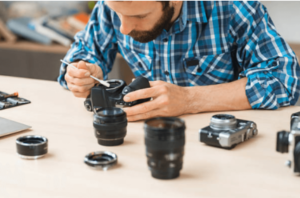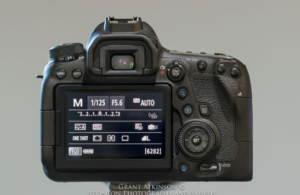Tips to Extend Camera Battery Life
Keeping your camera battery alive and kicking can be a challenge, especially during long shoots or travels. Let’s explore some practical tips and tricks to help you Extend Camera Battery Life
Understanding Camera Batteries
Types of Camera Batteries
Different cameras use different types of batteries, from the common lithium-ion batteries to older nickel-metal hydride batteries. Knowing the type of battery your camera uses can help you manage it better.
Battery Capacity and Life Expectancy
Battery capacity is measured in milliampere-hours (mAh). Higher mAh means more capacity, but over time, even the best batteries lose their ability to hold a charge. Understanding this can help you plan better for shoots.
Common Causes of Battery Drain
Battery drain can be caused by various factors, including high power settings, frequent use of the LCD screen, and keeping Wi-Fi or GPS enabled. Identifying these drains is the first step to extending battery life.
Optimizing Camera Settings
Adjusting Display Brightness
One of the biggest battery drainers is the LCD screen. Reducing its brightness can significantly save battery life.
Turning Off Wi-Fi and Bluetooth
If you’re not transferring photos or using remote control features, turn off Wi-Fi and Bluetooth. These functions consume a lot of power even when not in active use.
Disabling GPS and Geotagging
Unless you need location data for your photos, disable GPS and geotagging. This can save a substantial amount of battery power.
Using Airplane Mode
Airplane mode turns off all wireless functions. This is a great way to conserve battery when you don’t need connectivity.
Shooting Techniques to Save Battery
Using Viewfinder Instead of LCD Screen
Whenever possible, use the optical viewfinder rather than the LCD screen to frame your shots. The viewfinder uses significantly less power.
Limiting Playback and Review Time
Constantly reviewing your shots can drain the battery quickly. Limit playback time and avoid zooming in and out on the images excessively.
Reducing Continuous Autofocus
Continuous autofocus can drain the battery faster than single-shot autofocus. Use single-shot mode when continuous focusing isn’t necessary.
Avoiding Flash Use
Using the built-in flash consumes a lot of power. Use natural light whenever possible or opt for an external flash with its own power source.
Proper Battery Management
Charging Best Practices
Always charge your battery fully before use and avoid partial charges if possible. This helps maintain battery health.
Avoiding Overcharging
Modern batteries are designed to prevent overcharging, but it’s still a good practice to unplug the charger once the battery is fully charged.
Using Original Chargers and Cables
Stick to the original chargers and cables provided by the manufacturer. Third-party options might not be optimized for your battery, affecting its longevity.
Storing Batteries Correctly
Store batteries in a cool, dry place. Avoid leaving them in hot cars or direct sunlight, as extreme temperatures can damage the battery.
Using Battery Grips and External Power Sources
Benefits of Battery Grips
Battery grips allow you to use multiple batteries simultaneously, effectively doubling your shooting time. They also provide better camera handling.
Types of External Power Sources
From portable chargers to power banks, there are various external power sources you can use to extend your shooting time.
Portable Chargers and Power Banks
These are perfect for charging your battery on the go. Look for high-capacity power banks that can handle the power needs of your camera.
Solar Chargers for Outdoor Photography
If you’re shooting outdoors for extended periods, solar chargers can be a lifesaver. They allow you to charge your batteries using sunlight.
Backup and Spare Batteries
Importance of Carrying Spares
Always have at least one spare battery with you, especially for long shoots. This ensures you’re not caught off guard when the primary battery dies.
Choosing the Right Spare Batteries
Make sure your spare batteries are compatible with your camera model. Consider their capacity and brand reputation.
How to Manage and Rotate Batteries
Rotate your batteries to ensure even usage. This helps extend the overall lifespan of all your batteries.
Firmware and Software Updates
Keeping Firmware Updated
Manufacturers often release firmware updates that can improve battery efficiency. Regularly check for updates and install them as needed.
Benefits of Software Updates on Battery Performance
Software updates can optimize your camera’s power management, leading to longer battery life.
How to Update Camera Firmware
Follow the manufacturer’s instructions to update your camera’s firmware. This usually involves downloading the update to a memory card and installing it through the camera’s menu.
Environmental Considerations
Impact of Temperature on Battery Life
Batteries perform best at moderate temperatures. Extreme heat or cold can reduce battery efficiency and lifespan.
Protecting Batteries in Extreme Conditions
In cold weather, keep batteries warm by storing them in an inner pocket close to your body. In hot weather, keep them shaded and cool.
Tips for Shooting in Cold Weather
Cold weather can significantly reduce battery life. Keep spare batteries warm and only insert them into the camera when needed.
Maintaining Battery Health
Regular Battery Calibration
Some batteries benefit from occasional calibration. Fully discharge and then fully charge your battery to recalibrate it.
Monitoring Battery Performance
Keep an eye on how long your battery lasts compared to when it was new. Significant drops in performance might indicate it’s time for a replacement.
Recognizing Signs of Battery Wear
If your battery drains quickly or doesn’t hold a charge as it used to, it’s likely wearing out. Consider replacing it.
Troubleshooting Battery Issues
Identifying Battery Problems
If your camera shuts off unexpectedly or the battery indicator is erratic, there might be an issue with the battery or the camera’s power management system.
Solutions for Common Battery Issues
Try cleaning the battery contacts with a dry cloth. If problems persist, test with a different battery to rule out camera issues.
When to Replace Your Battery
If you’ve tried troubleshooting and the battery still underperforms, it’s time to invest in a new one.
Eco-Friendly Practices
Recycling Old Batteries
Don’t throw old batteries in the trash. Recycle them at designated recycling centers.
Eco-Friendly Battery Disposal
Look for eco-friendly disposal options to minimize environmental impact.
Choosing Sustainable Battery Options
Consider batteries from companies that prioritize sustainability and use environmentally friendly materials.
Case Studies and Real-Life Examples
Professional Photographers’ Battery Saving Tips
Learn from the pros. Many professional photographers have tips and tricks for extending battery life based on their extensive experience.
Lessons from Outdoor Photography
Outdoor photographers often face challenging conditions. Their strategies for battery management can be incredibly insightful.
selecting the right camera can also make a big difference. Check out our article on What features should I look for when selecting a digital camera?
RELATED POSTS

Understanding Different File Types and Their Impact on Memory Card Storage

How Can You Fix Focus Issues in a Camera Lens That Consistently Produces Soft or Blurry Images?

How Photographers Can Optimize Their Use of Multifunctional Control Dials for Faster Adjustments ?

